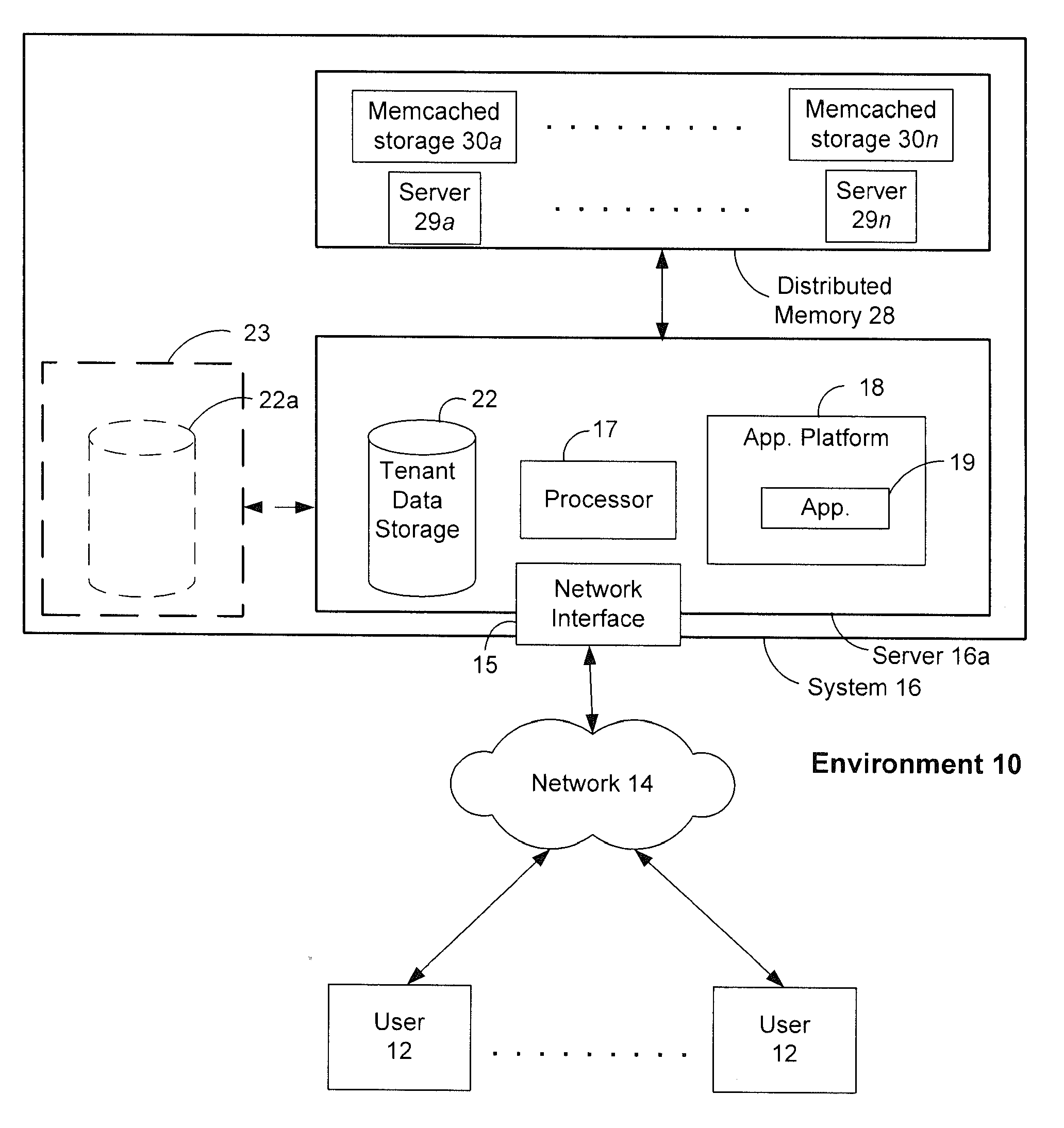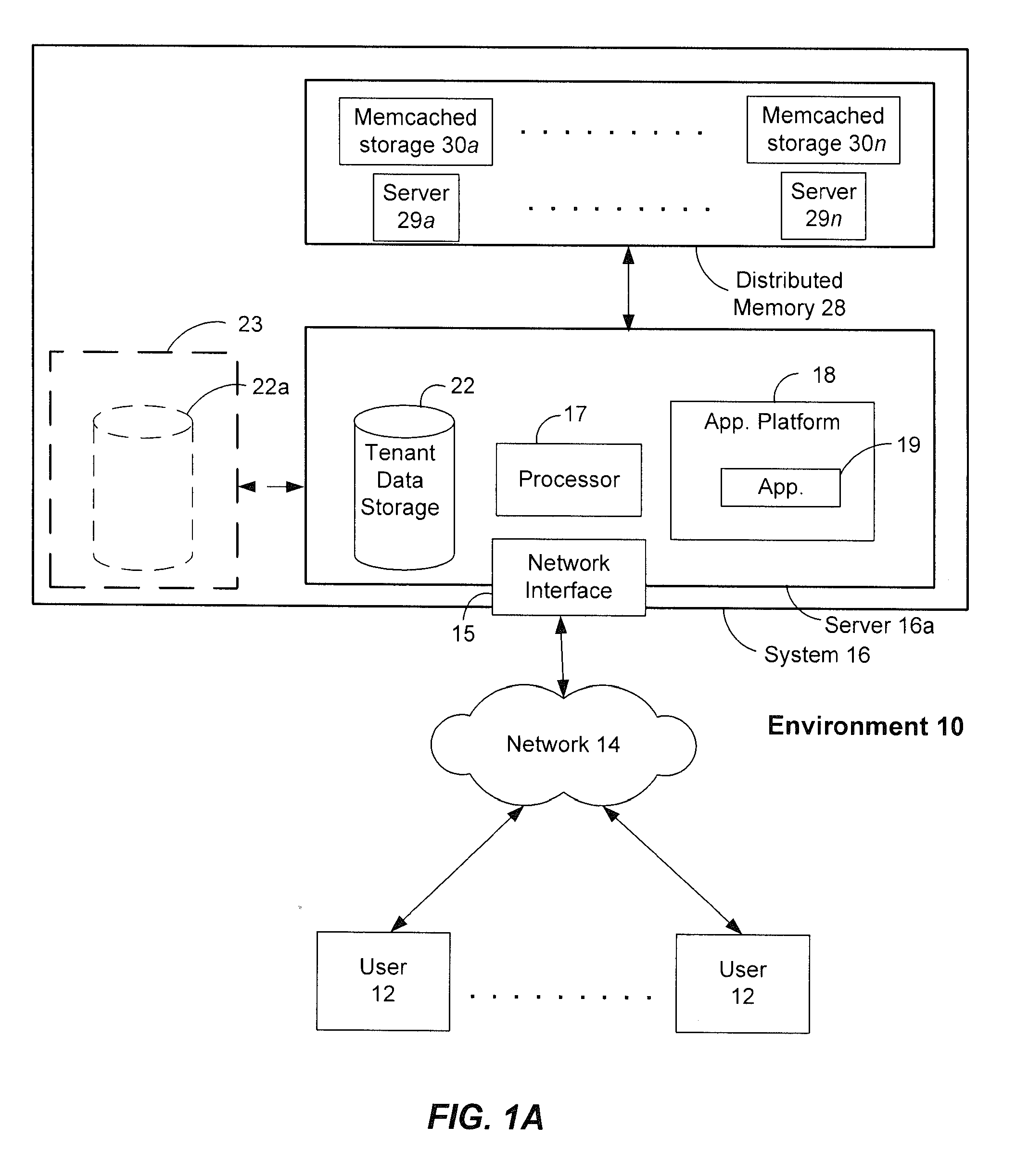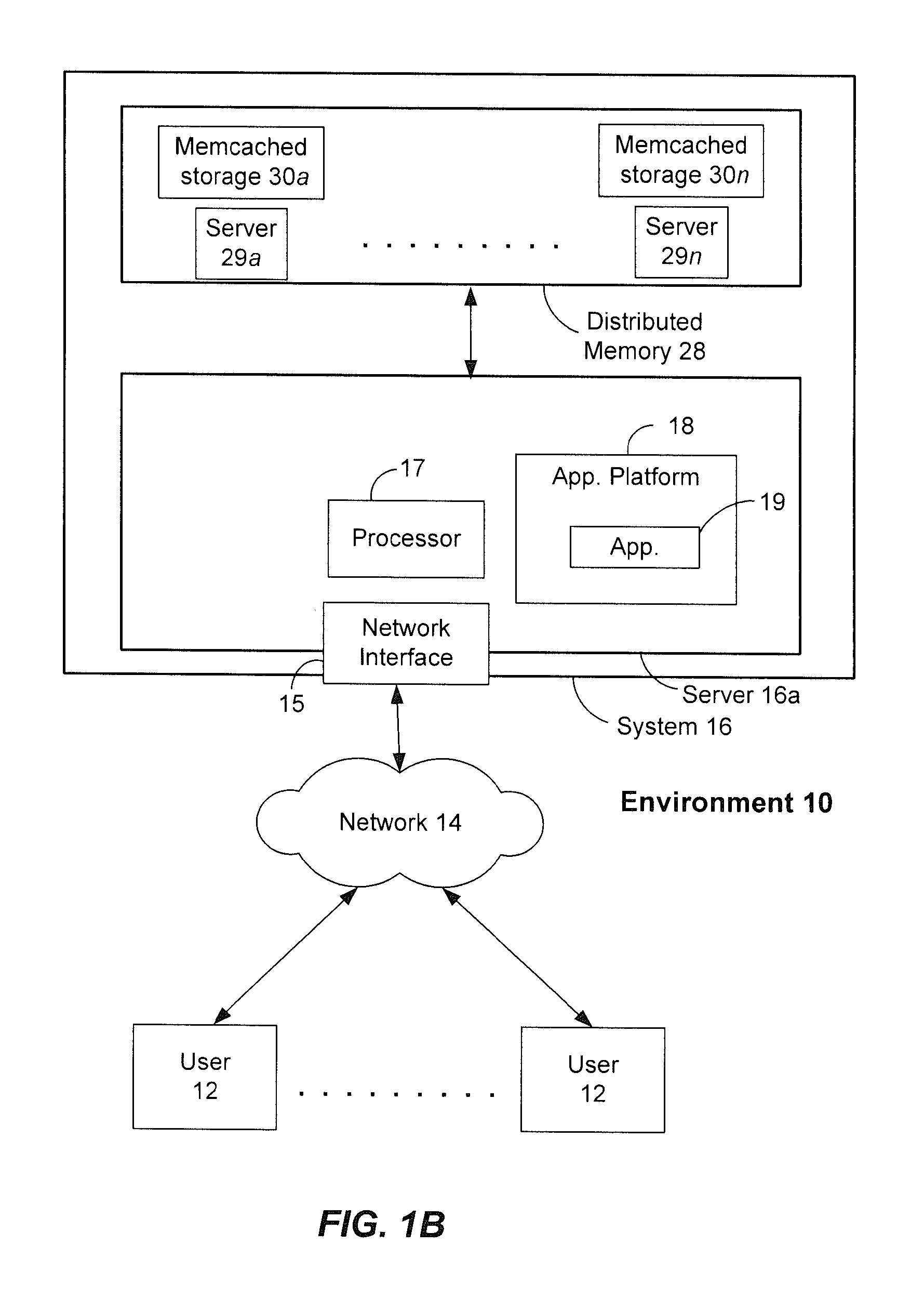Methods and systems for latency-free database queries
a database and latency-free technology, applied in the field of database queries, can solve the problems of inability to meet the requirements of database queries
- Summary
- Abstract
- Description
- Claims
- Application Information
AI Technical Summary
Benefits of technology
Problems solved by technology
Method used
Image
Examples
Embodiment Construction
[0029]1. Overview
[0030]Systems and methods are described for using a distributed memory system, such as open source memcached storage technology, to facilitate storage, indexing and searching for data as part of database operations. Advantageously, the use of a distributed memory system can be horizontally scalable in relatively arbitrary lengths to provide a significant resource for database operations and management. In particular, utilizing a distributed memory system for database operations can result in greatly improved speeds for data access and query results.
[0031]In order to take better advantage of the distributed memory system, a compressed representation of data is used for permanent storage, for temporary storage during query operations; and for indexing. The use of compressed data minimizes storage requirements and leads to much faster intersection and union operations.
[0032]In one embodiment, data is compressed by storing it as a two-level tree structure, where each le...
PUM
 Login to View More
Login to View More Abstract
Description
Claims
Application Information
 Login to View More
Login to View More - R&D
- Intellectual Property
- Life Sciences
- Materials
- Tech Scout
- Unparalleled Data Quality
- Higher Quality Content
- 60% Fewer Hallucinations
Browse by: Latest US Patents, China's latest patents, Technical Efficacy Thesaurus, Application Domain, Technology Topic, Popular Technical Reports.
© 2025 PatSnap. All rights reserved.Legal|Privacy policy|Modern Slavery Act Transparency Statement|Sitemap|About US| Contact US: help@patsnap.com



